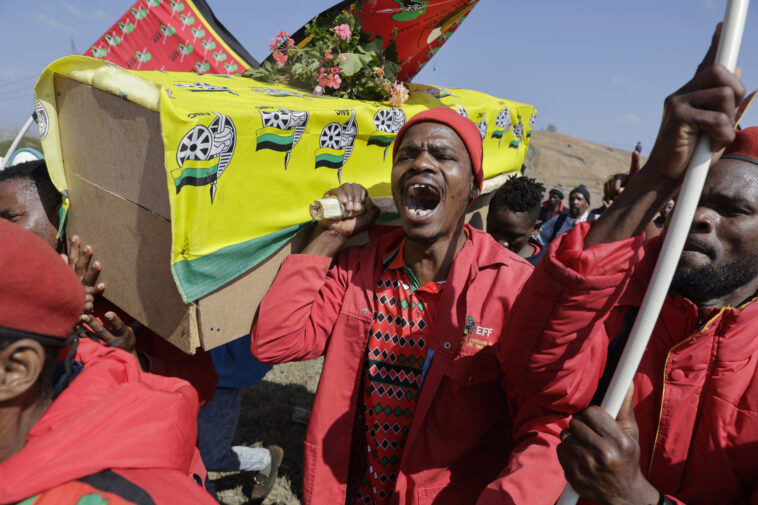A proposal by the ruling African National Congress (ANC) to terminate all local government coalition agreements with the Economic Freedom Fighters (EFF) will soon be reviewed by the National Task Team on Coalitions.
With national elections looming – expected to take place somewhere between May and the middle of August next year – questions arise about whether this fracture will help or hinder the ANC’s chances of re-election.
Political mudslinging
It has been widely reported in South African media that not everyone in the ANC’s National Executive Committee (NEC) supported a coalition with the EFF.
The NEC – the party’s chief executive organ – is comprised of top brass politicians including the president, deputy president, and secretary general.
A 2021 report by The Mail and Guardian quotes a senior NEC member as saying, shortly after the November municipal elections, that most NEC members “expressed that under no circumstances can they be held at ransom by the EFF”.
Tensions are highest in Ekurhuleni, a metro in the east of Gauteng province, where the ANC and EFF have a power-sharing agreement. But municipal leaders are at loggerheads with allegations of corruption coming from both sides.
Perhaps the most scathing assessment of the fraught relationship comes from the ANC’s head of political education, David Makhura, during the NEC’s sitting last month. Makhura referred to the EFF in a document seen by The Daily Maverick as a “proto-fascist party run dictatorially”, adding that the coalition is damaging the ANC’s brand.
Bumpy road to 2024?
With a split at the local government level seeming highly likely, the jury is out on whether a potentially messy separation from the EFF will impact the ruling party’s prospects of re-election when South Africans head to the polls next year.
“As we move to 2024, the ANC has its back against the wall,” political analyst Levy Ndou tells The Africa Report.
“While at an ideological level, there are similarities, at a personality level these parties don’t agree.”
Ndou, referring to the EFF and ANC as “enemies”, maintains that both parties have work to do and that the rift at the local government level poses an uphill battle.
On the one hand, the EFF must prove that it is indeed a better alternative to the ruling party, while the ANC needs to “go back to its roots” and convince its support base to cast votes once again.
Ndou notes a lack of trust in viable candidates among South African citizens. “You will notice that during the previous local government elections, many people did not show up to vote.”
It appears there is no clear path to victory for the governing party, which recently polled below 50% in multiple surveys. The Africa Report reached out to ANC spokesperson Mahlengi Bhengu-Motsiri for comment but received no response by the time of publication.
Understand Africa’s tomorrow… today
We believe that Africa is poorly represented, and badly under-estimated. Beyond the vast opportunity manifest in African markets, we highlight people who make a difference; leaders turning the tide, youth driving change, and an indefatigable business community. That is what we believe will change the continent, and that is what we report on. With hard-hitting investigations, innovative analysis and deep dives into countries and sectors, The Africa Report delivers the insight you need.

